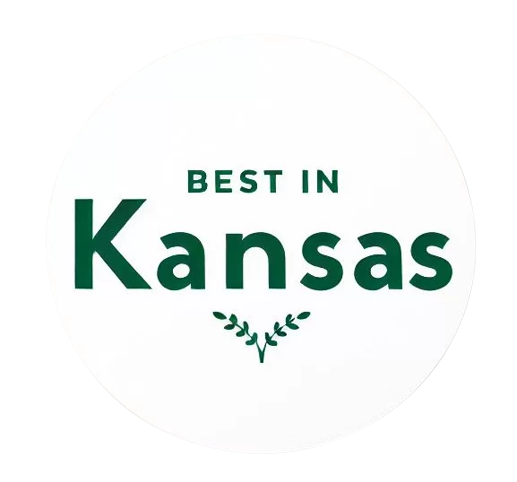As you drive past Kansas’ rolling sunflower fields, rural clinics struggle to find enough nurses to serve your community. Online Accelerated Bachelor of Science in Nursing (ABSN) programs offer a flexible, fast-track path to join this vital workforce. Explore how these programs address Kansas’ nursing shortage, empowering you to make a difference in 16 months.
Kansas’ healthcare system strains under a shortage of nurses, especially in rural areas where clinics are sparse and patients travel far for care. With 91 of 105 counties marked as Health Professional Shortage Areas, the need for skilled nurses is pressing.
Online ABSN programs provide a practical solution, enabling career-changers and students to train without leaving their Kansas roots. Curious about transforming lives through nursing? Here’s how these programs are reshaping the state’s healthcare future.
Kansas Faces a Nursing Crisis
Start with the stark reality: Kansas battles a persistent nursing shortage, hitting rural regions hardest. The Kansas Department of Health and Environment reports that 87% of the state’s counties are Health Professional Shortage Areas (HPSAs) for primary care, with nursing gaps close behind. This shortage means overworked staff and delayed care in areas where hospitals are hours apart.
Consider online ABSN programs in Kansas as a swift response. For instance, programs like Rockhurst University’s Hybrid ABSN blend online coursework with brief on-campus residencies and local clinical rotations, preparing you to become a registered nurse (RN) in just 16 months.
Accredited by bodies like the Commission on Collegiate Nursing Education (CCNE), these programs offer simulation labs and patient care experience. With 29% of Kansas RNs planning to retire by 2030, per the Kansas Nursing Workforce Center (KNWC), these programs are vital.
Rural Healthcare Needs Solutions
Zoom into rural Kansas, where healthcare access is a daily challenge. The KNWC notes that counties with the fewest nurses—under 17 per 1,000 residents—are often rural, deepening health disparities. A patient in Cheyenne County might drive over an hour to a clinic, only to face understaffed teams.
Break through geographic barriers with online ABSN programs. You can study from places like Liberal or Salina without relocating, and clinical placements are often arranged locally.
A rural nurse once shared, “Training locally means you understand your community’s needs.” These programs keep you rooted while preparing you to serve where nurses are scarce, directly tackling rural healthcare gaps.
ABSN Graduates Find Opportunities
Look at the numbers: the demand for BSN-prepared nurses is strong. The Bureau of Labor Statistics projects a 6% growth in RN jobs by 2032, with a 13% shortage in rural areas like Kansas. Kansas RNs earn an average of $65,350 annually, a solid income given the state’s affordability.
Factor in recent policy shifts: nurse practitioners in Kansas can now practice independently, opening roles in rural clinics. The American Association of Colleges of Nursing reports that over 70% of employers prefer BSN graduates for their advanced skills. From urban hospitals like HCA Midwest Health to rural health centers in Colby, ABSN programs prepare you for diverse careers.
Support Eases the Nursing Transition
Wondering how to balance a demanding program with a busy life? ABSN programs are rigorous but offer robust support to help you succeed. Many include:
- Local clinical placements to minimize travel disruptions for rural students.
- NCLEX coaching, often achieving pass rates above 95%.
- Financial aid, like the Nurse Loan Repayment Program, to reduce costs.
Take a teacher in Topeka retraining as a nurse: online coursework fits their schedule, and nearby clinicals make training feasible. The KNWC notes that younger RNs are increasingly diverse, reflecting Kansas’ evolving population. These programs empower varied candidates, from first-generation students in Dodge City to working parents, to strengthen their communities’ healthcare.
Technology Enhances Nursing Training
Dive into the role of technology in nursing education. Online ABSN programs use virtual simulations to teach skills like IV insertion or emergency response, while telehealth training addresses rural access issues.
A nurse in western Kansas described telehealth: “It’s like bringing the clinic to a patient’s doorstep.” These tools prepare you for real-world challenges, from managing patient care to navigating digital health platforms.
Preparing for Kansas’ Healthcare Needs
Think ahead: The National Center for Health Workforce Analysis projects a 38% demand surge for advanced practice nurses by 2032.
Telehealth and simulation-based training ensure ABSN graduates are versatile, ready for bedside care and innovative roles like virtual consultations.
These skills are crucial for serving Kansas’ aging population and rural communities, where chronic conditions like diabetes are prevalent.
Strengthening Kansas’ Healthcare Future
Reflect on this: online ABSN programs are a lifeline for Kansas’ nursing shortage. By blending flexible learning with local clinical experience, they prepare you to serve where you’re needed most—whether in a bustling Wichita hospital or a quiet Goodland clinic.
With demand for nurses rising and training pathways accessible, you can become a cornerstone of Kansas’ healthcare system, ensuring every community thrives.

